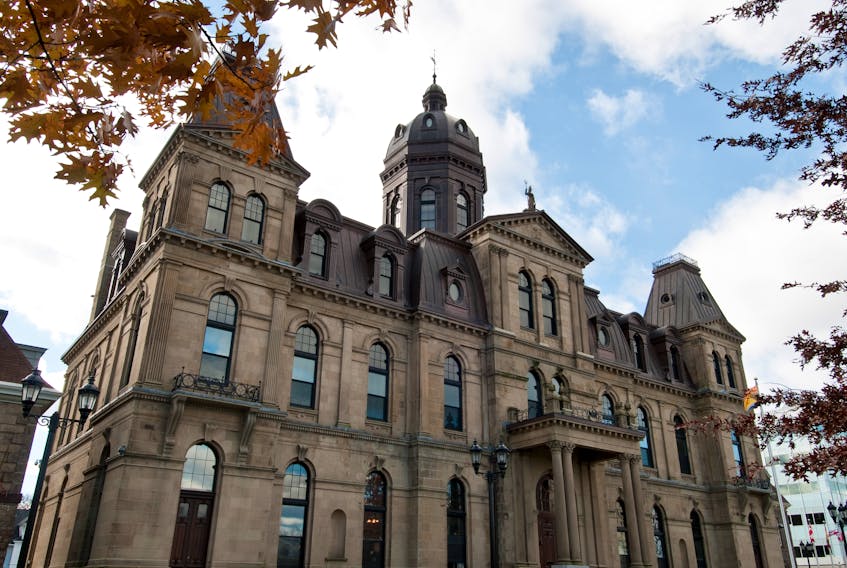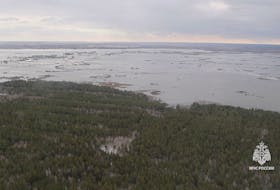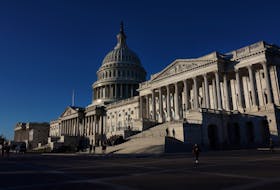As Brian Gallant leads a divided legislature back to work this week, can his Liberals make this untenable situation work? And if not, what next? Will Blaine Higgs be given the opportunity to take his shot? And will he be able to get the numbers on his side? Or are we just doomed for another election?
These are just some of the questions on the minds of New Brunswickers this week as Gallant takes his first stab at trying to gain a balance of power from a minority government situation.
“Mr. Gallant has a big challenge ahead of him,” says Mario Levesque, associate professor of politics and international relations at Mount Allison.
Levesque, one of three panelists involved in a lunch-and-learn discussion at the university on Monday, says as Gallant headed back to the Legislature Tuesday, it seems like the clock is already ticking for his Liberals.
Already Gallant has been struggling to find a member to sit in the Speaker’s chair and so it seems doubtful he will be able to cobble together enough support for his Throne Speech, says Levesque.
After the polls closed on election night, the Tories had won 22 seats, the incumbent Liberals had 21, the People’s Alliance earned three and the Greens had three seats. Twenty-five seats are needed for a majority in the 49-seat house.
Levesque says even if he manages to sway the three Green Party members to vote in his favour, it wouldn’t be enough – so he’d either need support from the People’s Alliance or the Conservatives.
“That looks very unlikely to happen,” he says. “I mean, it could, but not very likely.”
Gallant would need a “Hail Mary pass” to survive the election of the Speaker and the vote for the Throne Speech in order to continue to govern, says Levesque. If he does somehow manage to do so, then he’d need to sustain those votes to pass a budget later this fall.
Since that’s an unlikely scenario, Levesque says he foresees Gallant resigning sooner than later.
“That’s likely what’s going to play out here in this process.”
But Levesque also predicts Higgs will face an uphill battle as well to gain the confidence of the house when it’s his turn. If the Conservatives do manage to gain enough support from the third parties, will it be enough to allow Higgs to govern for any period of time?
Levesque says minority governments, historically, don’t last more than 18 months to two years. And if things break down sooner than that, an election could come even sooner.
RELATED: Can a New Brunswick minority government survive?
So, how did New Brunswick get in the situation it’s in?
Brad Walters, geography and environment professor at Mount Allison, says there were many causal influences that led to the minority government situation the province finds itself in.
First, local campaigns and candidates really mattered in this election.
“Where the Greens and People’s Alliance won, they had smart, dedicated and charismatic candidates that did the hard work of door-to-door canvassing and generally showing up and establishing clear presence at public events and in media coverage.”
Elements of social geography were also clearly at play, says Walters, who also presented at the lunch-and-learn session on Monday.
“This is apparent province-wide in the notable division between Liberals, who dominated most Francophone and bilingual jurisdictions like Moncton-Dieppe, as compared to Conservatives, who dominated in predominantly Anglophone regions.”
The Greens won two of their three seats in districts home to universities, Walters says, while the Peoples’ Alliance gained votes in northwest N.B., in predominantly rural and Anglophone communities.
Walters also points out that the rise of non-traditional parties and unconventional ‘leaders’ is something we are witnessing across many other jurisdictions in Canada and the wider world.
“Some very big shifts in politics are underway and the story that recently played out in New Brunswick in many respects mirrors these wider national and international trends.”
Central among the causal factors, says Walters, is the rapid increase of available information via the Internet and social media. This has led to people becoming increasingly cynical and distrustful of existing institutions and leaders.
“Just about everybody seems to be pissed off at their government and ruling elites. This generally sour mood opens the door for new entrants who challenge the status quo and propose to do things differently.”
What You Said
New Brunswickers are getting frustrated and impatient with the parties as they wrestle for power.
Sackville resident Bill Crossman, via Facebook, says the childish antics are disappointing and he wishes the volleying back and forth for power would stop.
“Time for them to put on their big boy pants and work for the people that elected them. Get it together.”
Bonnie Stiles, also of Sackville, commented on Facebook that Gallant should have conceded the win and moved on.
“He should accept the loss, another election could prove worse for him.”
Michael Arsenault of Riverview simply had this to say: “I smell another election.”









